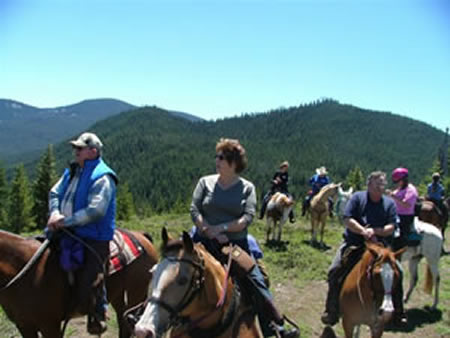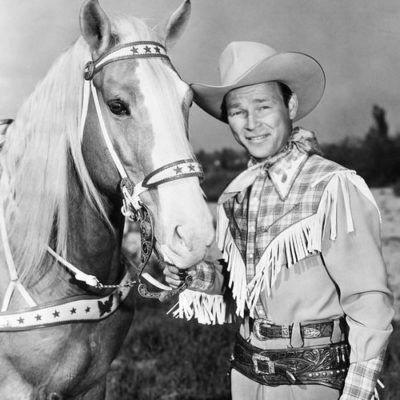LNT #6 Respect Wildlife – Avoid disturbing wildlife during nesting or calving time when babies are very young. It involves not feeding wildlife and habituating them to human food, and securing food properly so bears don’t get into it.
These Leave No Trace (LNT) articles were originally published in the OET Riders Roundup in the early to mid 2000’s. They were written by Bonnie Stockman, a long standing member and supporter of the OET Mission and way. Among her many talents, Bonnie was a Equestrian Leave No Trace (LNT) educator and wrote many articles for the OET Riders Roundup. Today as she watches over us, we honor Bonnie’s work, by reprinting the articles for everyone, so while we ride let’s do our part by leaving no trace and become a better steward of our public lands.
Now this doesn’t mean that you have to tolerate wild parties in horse camps.
Apart from the bad pun, there’s a common thread here.
Have you ever been some place minding your own business, enjoying the peace and quiet, when along comes some yahoo and his / her big RV and generator and drunken friends and a whole passel of kids, dogs, relatives , unbroke horses, and a boom box playing your worst nightmare of a radio station at full volume. “There goes the neighborhood” is generally the first thought running through my mind!
Now I realize some of you would treat this as an invitation to “party on, dude.” But, what if for once, you didn’t? You might feel intruded upon or offended. Or stressed out. In any case, you probably wouldn’t get a lot of sleep.
Many of us would suddenly decide that maybe it was time to go back home and do yardwork.
Its kind of like that to the wildlife in the Backcountry when we come through with our human noise and presence. Most of them are not too interested in our parties and the ones that are, get kind of troublesome.
Most wild animals live a pretty lean existence. They don’t generally have a lot of spare calories for dealing with stress or always being on the run. A couple of years studies by the Department of Fish and Wildlife noted that elk reproduction was down in some areas with a lot of roads – the elk appeared to need a place to get away from constant intrusion by humans. Bats disturbed in caves too many times during their winter hibernation use too much of their stored fat moving around and end up starving before spring.
Conversely, some animals adapt too well to people and their food and either reproduce themselves beyond the natural carrying capacity of the land (for instance, squirrels at a campground) or become dangerously bold about food (like bears).
It is very special to see animals in the wild. I will always remember the pair of coyotes nibbling huckleberries in a remote meadow in Indian Heaven. And who hasn’t treasured that special meadow with the perfect doe and fawn?
If possible, quietly observe wildlife from afar to avoid disturbing them.
If you happen upon them while riding, stop, enjoy the rare treat of seeing wildlife in its natural setting and give them time and space to leave at their own pace. In some cases you may need to be the one that quietly leaves the area if an animal appears aggressive or is too disturbed.
Pay attention to animal pathways and avoid camping in them. That nice meadow with the scarred up trees and the ruts in the grass might be a place where bull elk duel, if its in the fall.
Give animals a wide berth during breeding, nesting, and birthing seasons. Also, for some protected species, there can be fines if you disturb them during these critical parts of the reproductive cycle.
Respect animal mothers and their young. A lot of species are very protective if they feel their young are threatened.
Don’t touch what appear to be abandoned wild animal babies. Many species leave their young alone while foraging for food. Your human scent on a baby animal could cause its mother to abandon it when she returns.
Store food securely. Animals that eat human food rather than the food that nature intended for them to eat, may not be as healthy and as able to survive the winter. Animals that become so accustomed to human food that they become threatening to humans, may end up having to be destroyed.
LNT Tip of the Month: If an animal alters its normal activities, you are too close.
May we always have Mountains and Rivers Without End.
Bonnie & Velvet










Leave a Reply